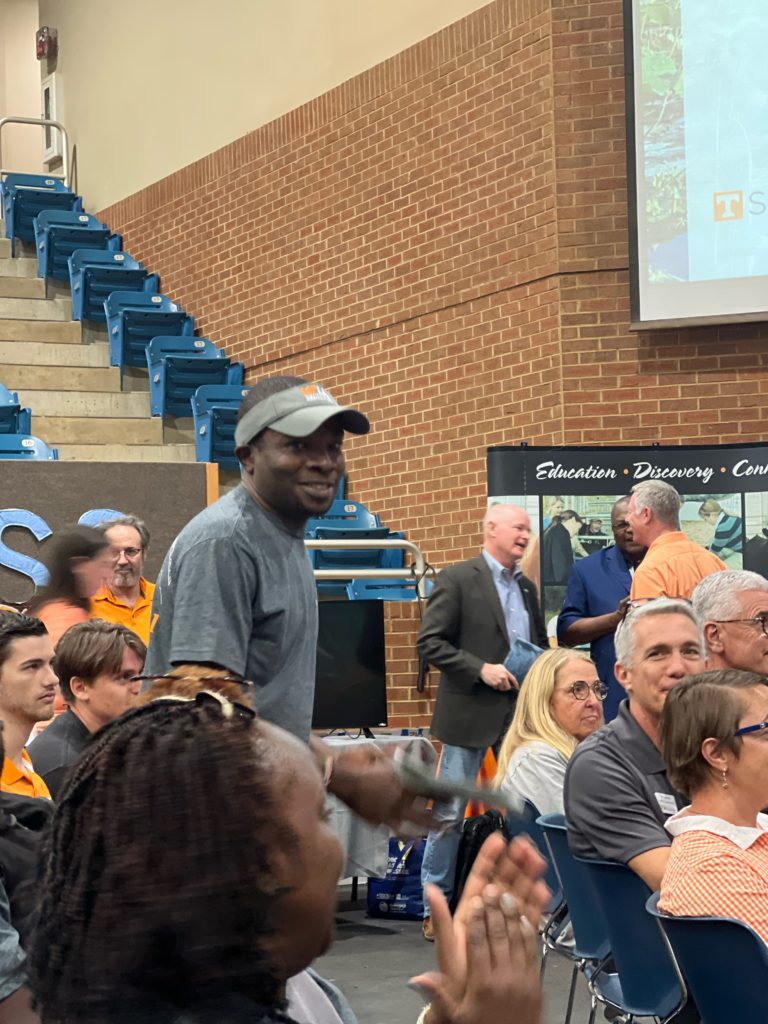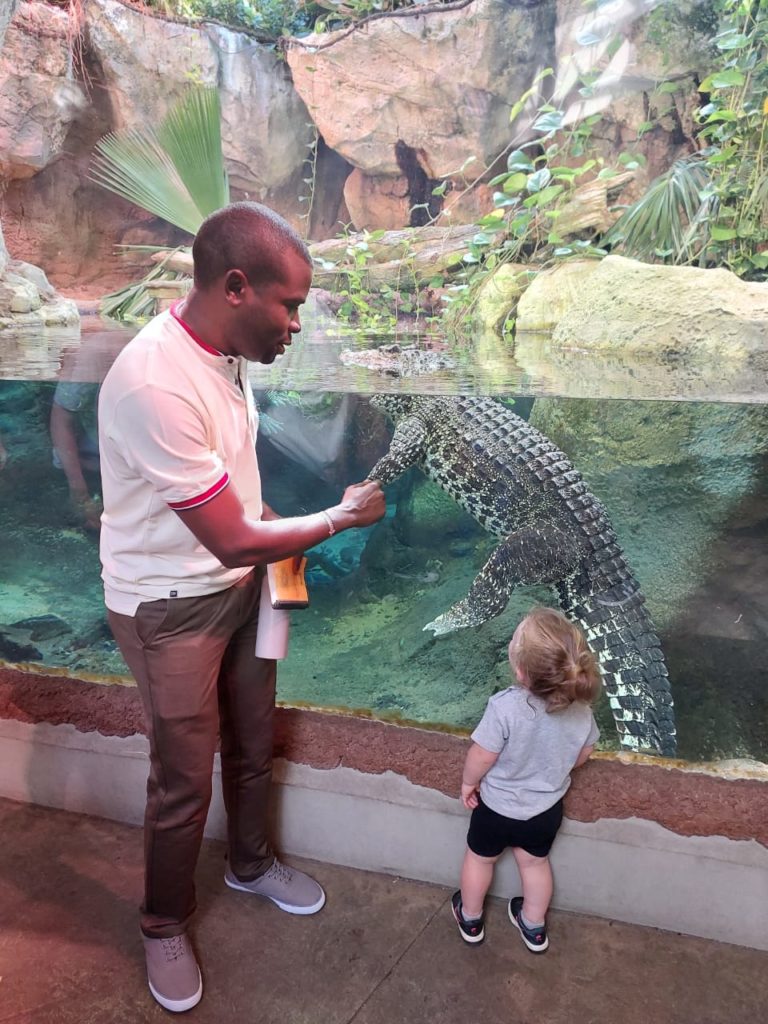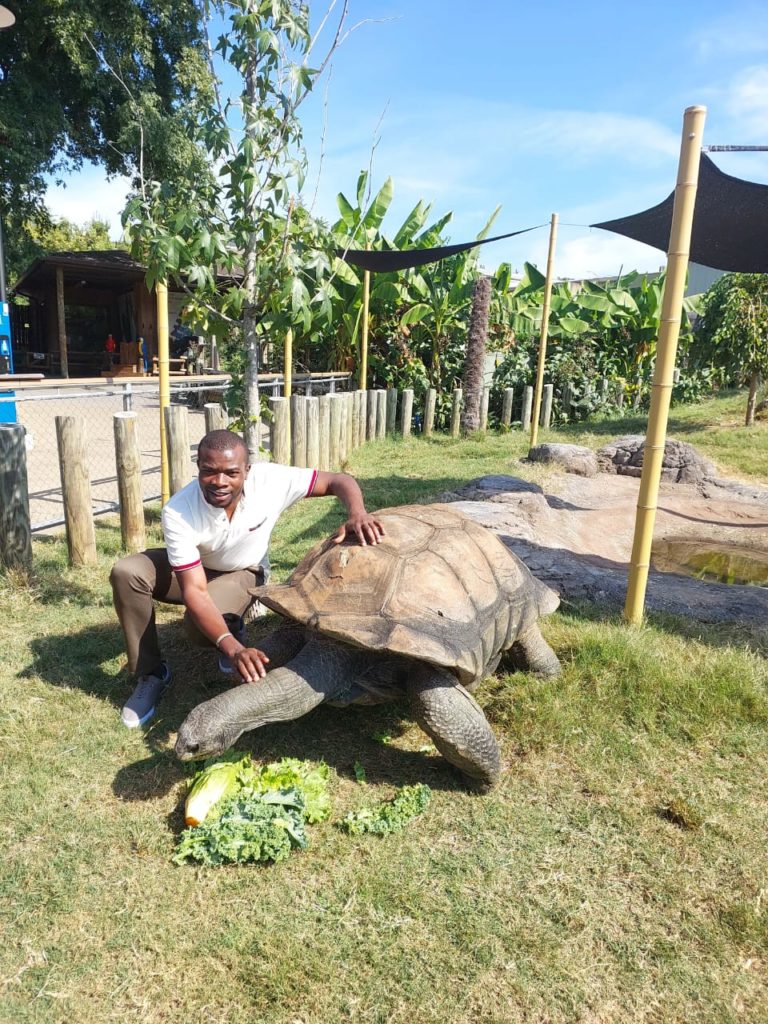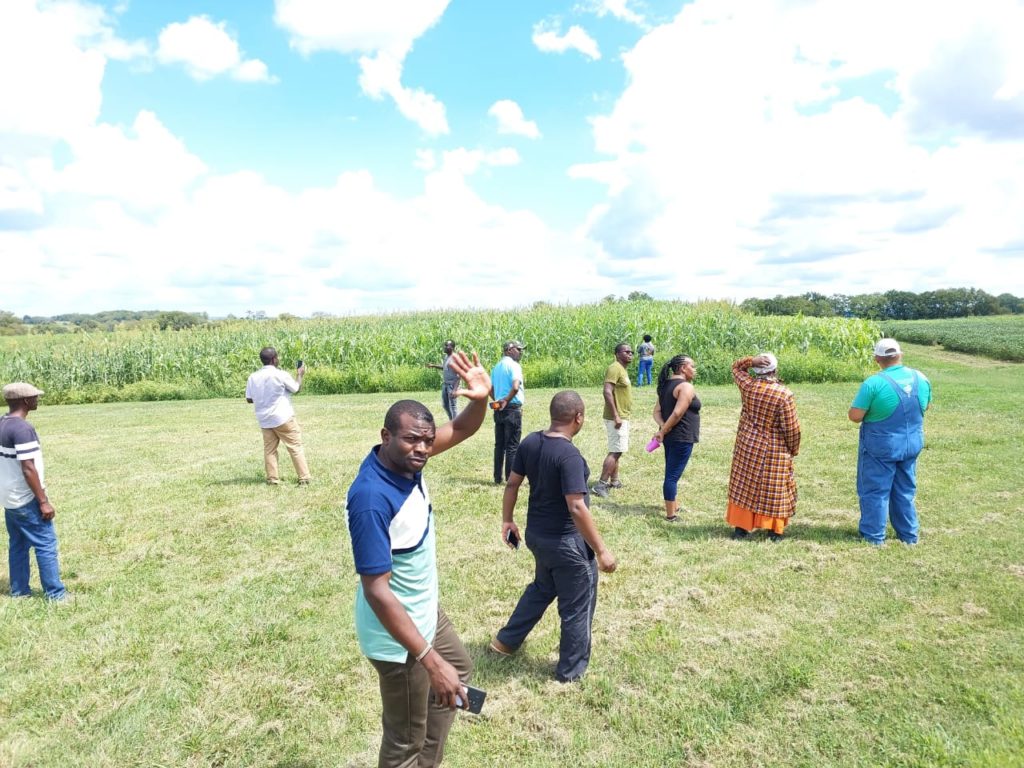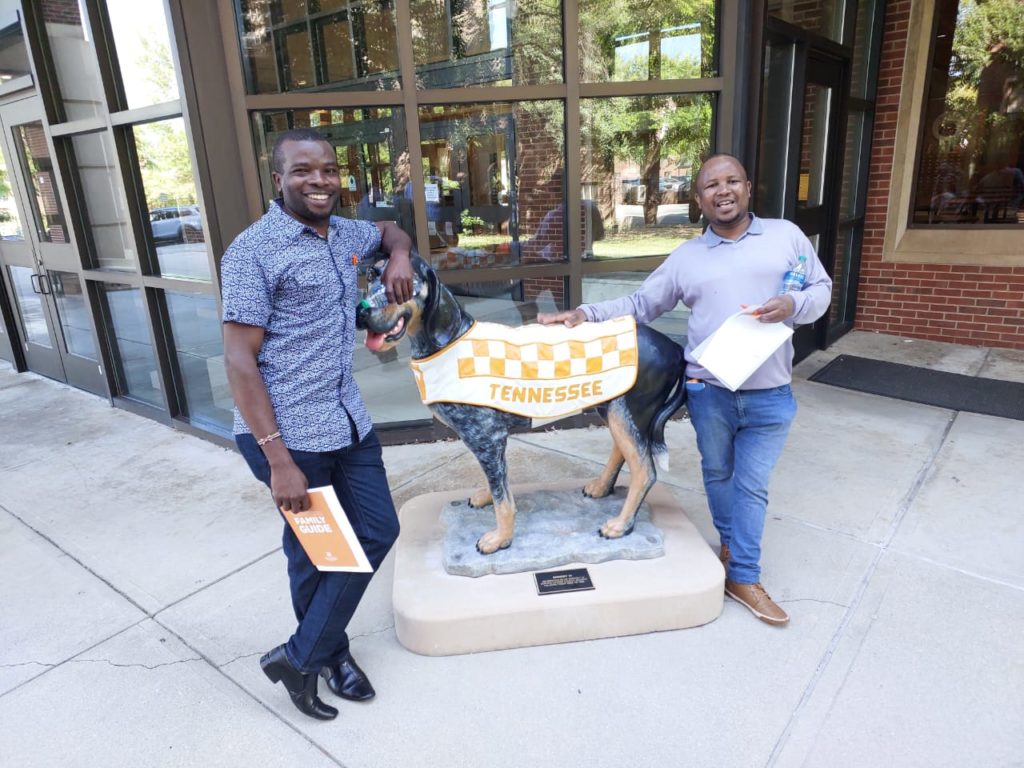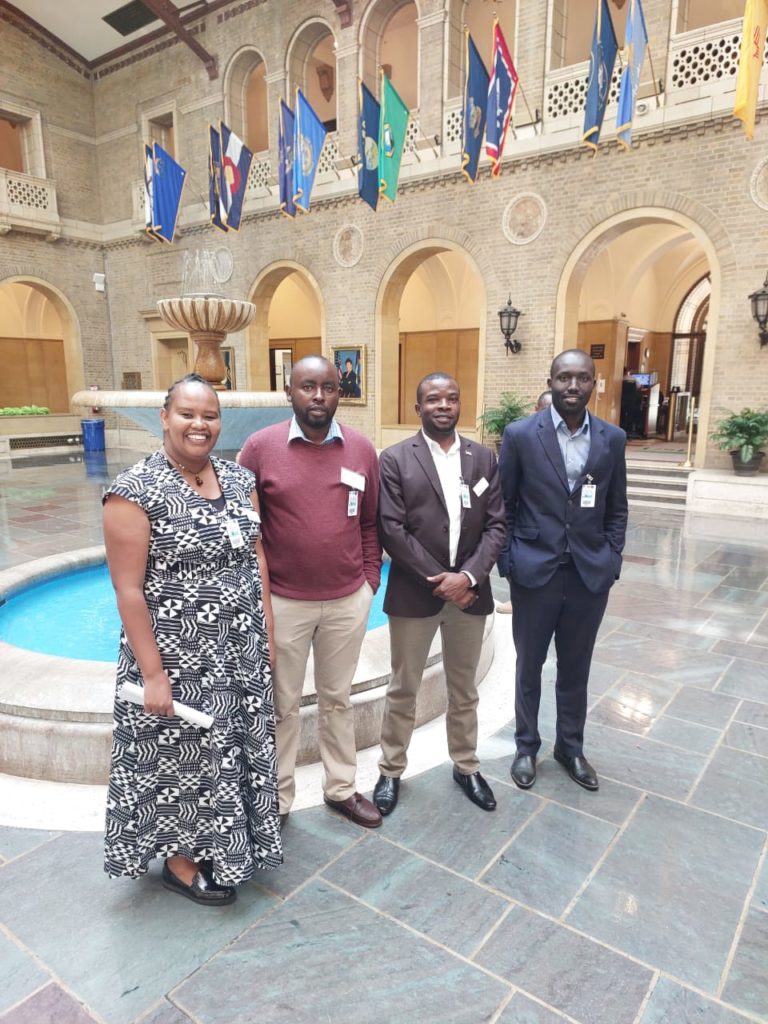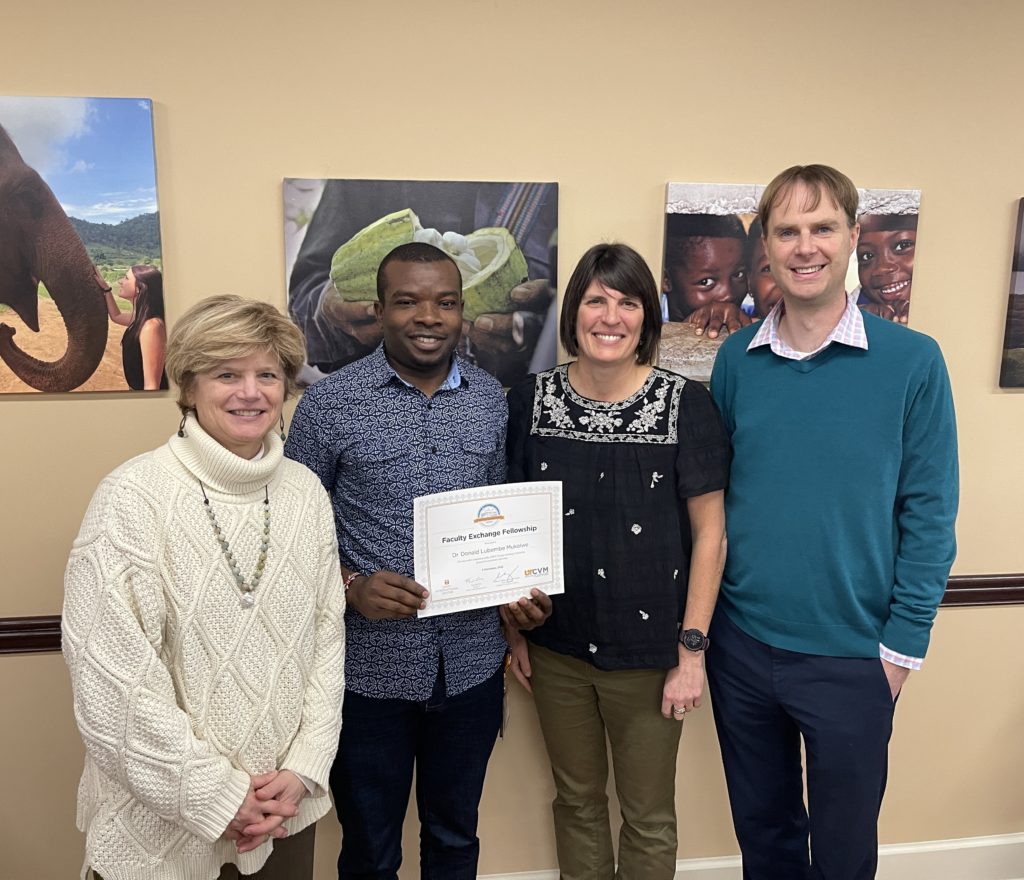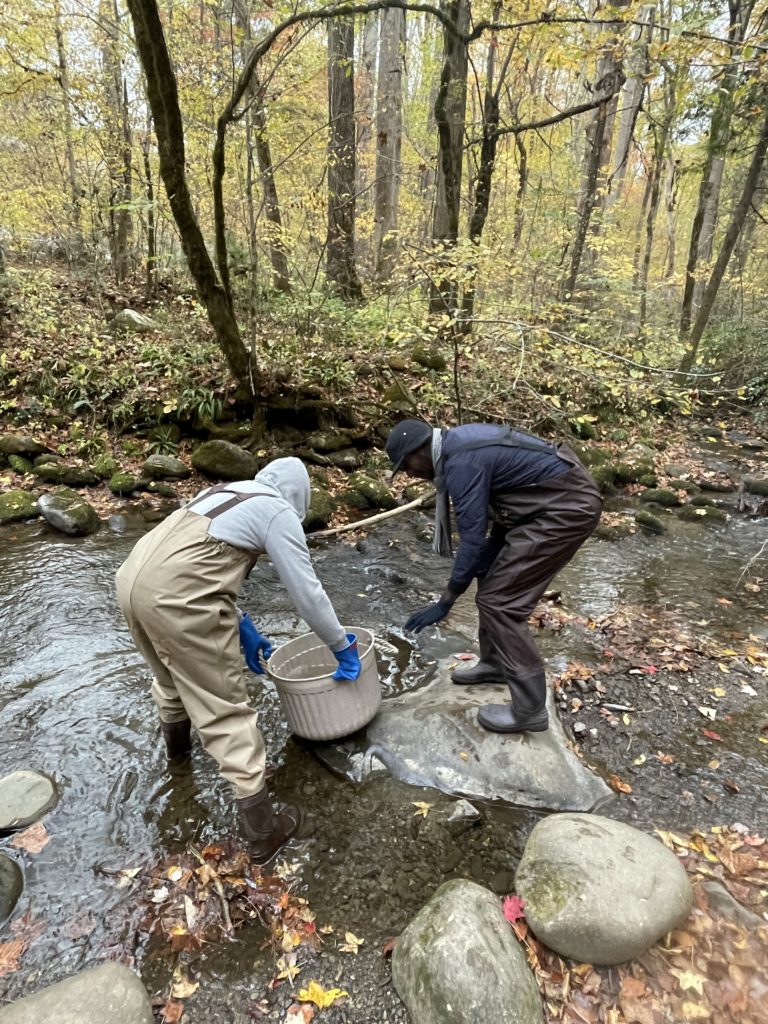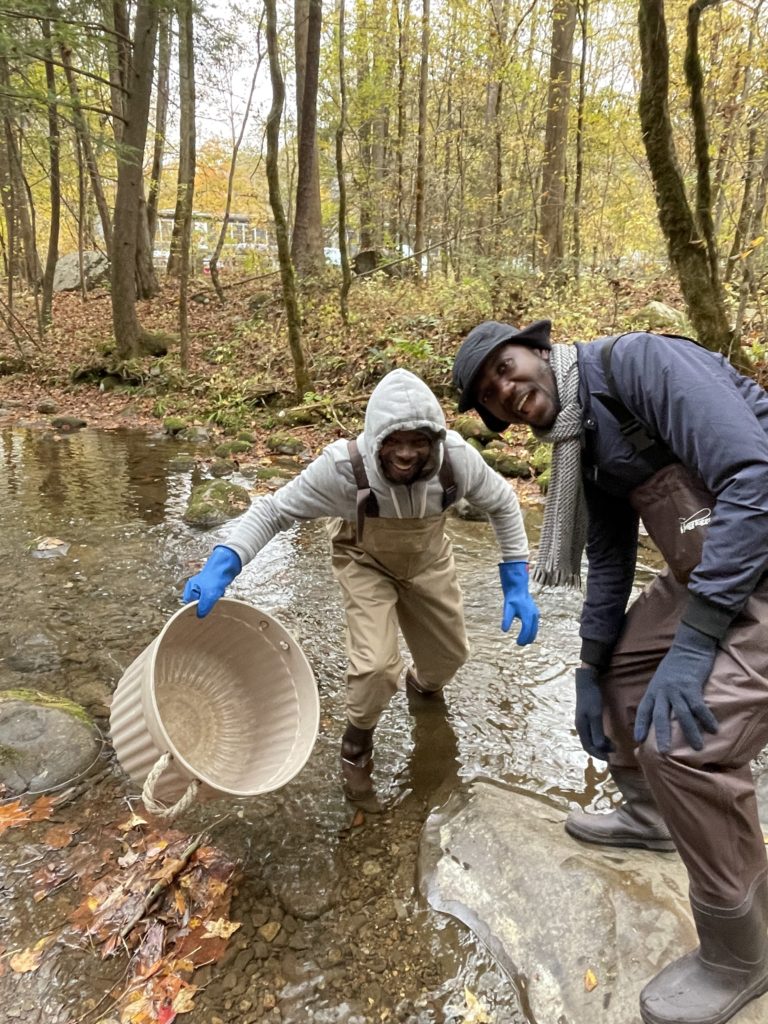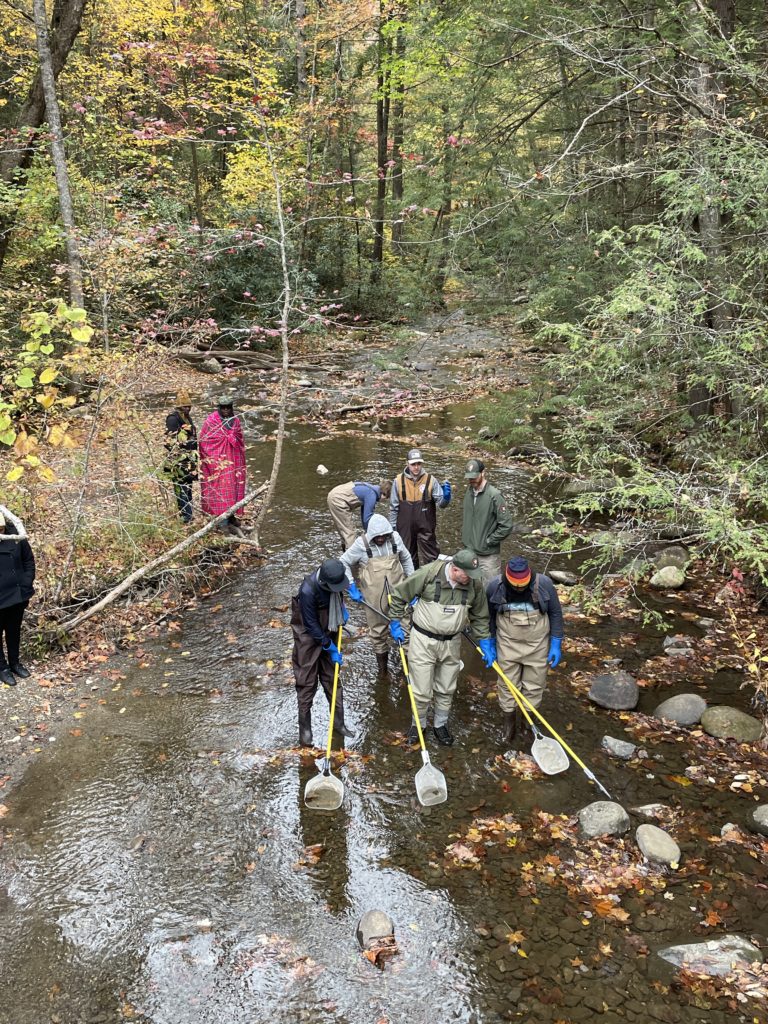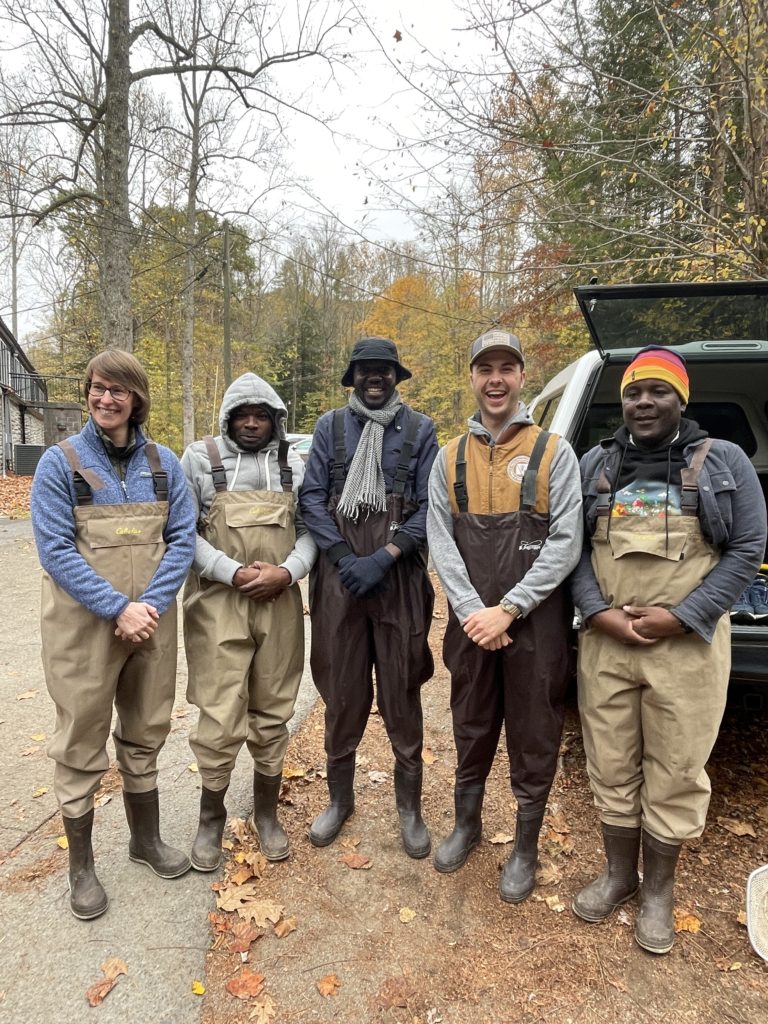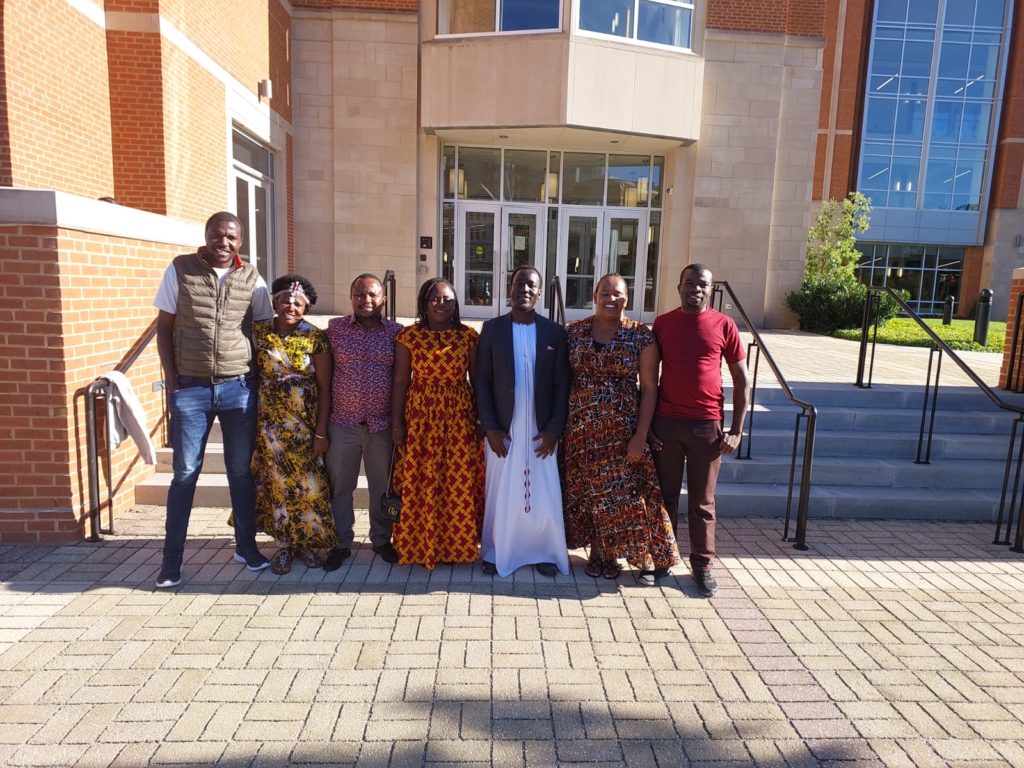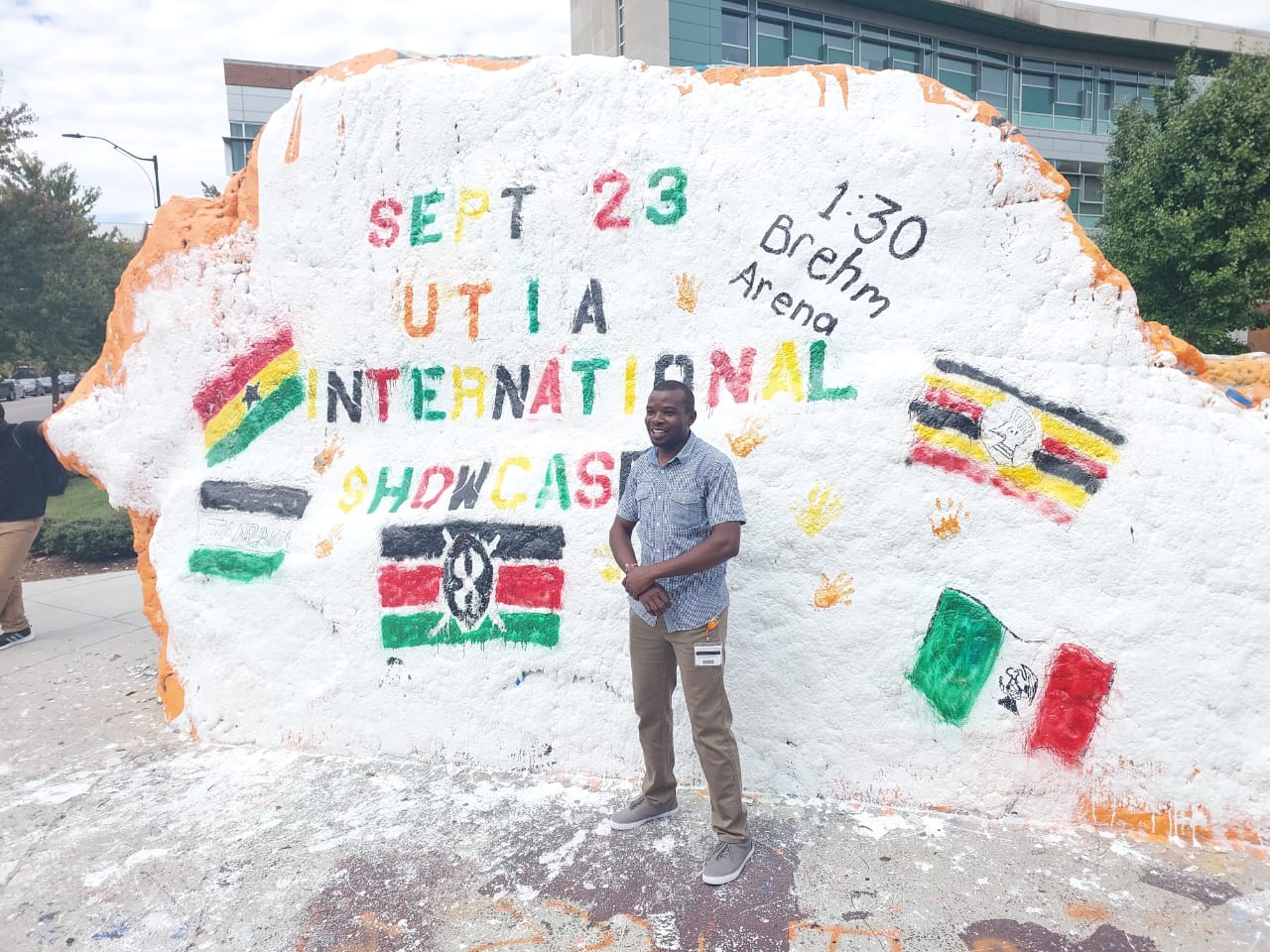
By Nadia Tippett
From August to December 2022, the University of Tennessee Institute of Agriculture hosted nine Faculty Exchange Program (FEP) and five Scientific Exchange Program (SEP) fellows from four African countries. These programs are funded through the Foreign Agriculture Service (FAS) at the United States Department of Agriculture (USDA), and they focus on veterinary teacher pedagogy and animal health governance. Marcy Souza, professor and associate dean for outreach and global engagement at UTIA CVM, served as the project lead for both programs. The visiting SEP fellows were all from Kenya, and the FEP fellows were from Ghana, Kenya, Tanzania, and Uganda. They were matched with faculty members from three different UT colleges for mentorship for the duration of their programs. Learn more about each fellow and their mentor throughout this #FacultyExchangeFriday blog series.
Donald Lubembe is a lecturer at Egerton University in Kenya. His core duties include teaching and research, assisting undergraduates with final projects and serving as the head of the Department of Veterinary Pathology, Parasitology, and Microbiology. Read more about his experience as an FEP Fellow below!
Q: What interested you about this program?
My colleagues had participated in this program previously. I was interested in having exposure to veterinary training in other countries, so I decided to apply. I was also curious to see how veterinary medicine programs are set up here in the US, and excited to find ways to improve our program back home.
Q: What were some highlights of the program for you?
I would like to give a big thumbs up to Marcy and the entire team for the excellent planning and execution of this program. I liked that the key components of this program focused on teaching improvement; I learned a lot from the excellent delivery of lectures. At home, they don’t engage with students as much, so it was nice to see more interaction here between teachers and their students. It creates a good environment for learning. I also noticed that students are very involved here; they work hard in class and seem to learn very quickly.
The master teacher program taught me how to prepare and deliver lectures, set good questions for exams, engage students, and get useful feedback from them. The aspect of feedback both from students and other faculty was helpful. There is lots of teamwork in delivery and through that, you get lots of feedback so you can improve more.
I also learned new research techniques and how to use the laboratory equipment they have here. My mentor is both a teacher and researcher, so I got to see his lab and the equipment he has access to as well as the classroom. I learned that research here is problem oriented because the expectation is to come up with a product that will go to market and help farmers and animals. My mentorship has been great; I was able to connect with other mentors and faculty, so I was not restricted to just my mentor.
Q: What are you next steps following your completion of this fellowship?
My first goal will be to meet with other faculty in the department so we can organize training to share what I have learned. I am excited to implement new teaching ideas and update the curriculum to improve the standards of veterinarians trained at home. I would like to emphasize more practical work rather than theory in the classroom, so it is more hands-on for the students. Since I am the department head, I can present what I have learned to my dean as well. I would also like to work on changing my teaching delivery and style a bit.
I have previously been more lecture-centered, but now with more students, I plan to implement problem-based learning. I plan on giving students case studies so they can learn about the problem and find the solution themselves. I plan to get involved with practicals because here at UT the lecturer is always there. At home, only the lab technician would lead.
I also plan to collaborate with the connections I’ve made here at UT. The problems in Africa are different, but I can bring together our skills to solve more problems as a team.
Q: Why do you view exchange programs like this one as being important?
These exchange programs provide a more hands-on role that influences policy in major ways. This is important because it leads to improved training and improved disease control at the policy level. I was also the only person on the team lucky enough to have two mentors. Each of them has their lab and has been so helpful with everything. They reached out to see how everything was going with my stay and introduced me to their grad students in the lab. It felt like a big family; they welcomed me into their family, gave me space to sit and work, and were always available. They were always asking if I needed help or needed anything. The program was very well-balanced; the more activities we were doing the better. Overall, I had lots of fun.
Q: What was your favorite part about being at UT and in Knoxville, TN?
I’ve had so much fun in Tennessee. This was my first time in the state, so before I came, I researched on the internet what it was like here. I found online that Tennessee was a quiet, agricultural state, very peaceful and simple. Knoxville is quiet and organized with the best public transport. I liked the buses; they made traveling within Knoxville very easy. I could go anywhere I wanted. It was well facilitated in terms of movement because we were given bus cards. I was well cared for at the hotel, they were very accommodating. Everything about our stay was on point; they made our lives comfortable in Knoxville and throughout the entire program. I enjoyed visiting the zoo and the Lost Sea Cave. American football was fun too. I was impressed by the culture and enthusiasm for the game.
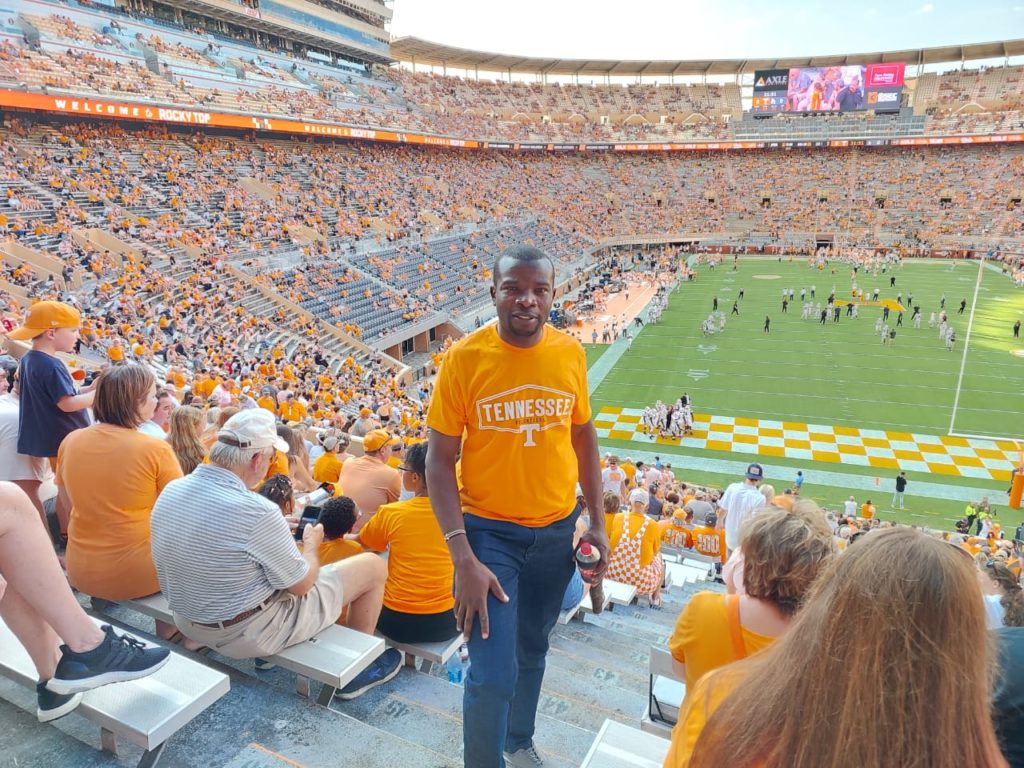
Donald was mentored by Girish Neelakanta and Hameeda Sultana, associate professors of Biomedical and Diagnostic Sciences for the College of Veterinary Medicine. Neelakanta’s laboratory works on tick-borne bacterial diseases with a focus on Anaplasmosis, Rickettsiosis and Lyme disease. Sultana’s laboratory works on vector-borne viral diseases with a focus on infections caused by the West Nile Virus, Dengue virus, Zika virus and Langat virus. Both laboratories are funded with NIH grants and are working on developing transmission-blocking vaccines to target vector-borne diseases.
Q: What interested you in participating in this program?
Dr. Sultana and I have extensive experience in the field of vector-borne diseases. We want to pass our scientific skills to younger generations including trainees from other countries. This program is a good opportunity to provide training to a younger generation of scientists and instructors.
Q: What were some highlights of the program for you?
It was good to see that trainees selected in this program had good exposure to U.S. universities. They got to learn how research and training is done here. In addition, they got an opportunity to build scientific relationships with their mentors that could go a long way. For example, Donald generated some preliminary data during his brief stay in our laboratories. He will be considered as a co-author in the manuscript that will be submitted for publication in a peer-reviewed journal.
Q: What did you learn from interacting with your mentee?
We were able to learn how research and training is done in Africa. We discussed the types of ticks in Kenya. In addition, we learned about their country’s culture, people, language and environment.
Q: What kind of impacts do you think these exchange programs have?
This will provide a strong basis for future US-Africa relationships. In addition, this is an opportunity for scientists from both countries to collaborate and address several important scientific issues.

